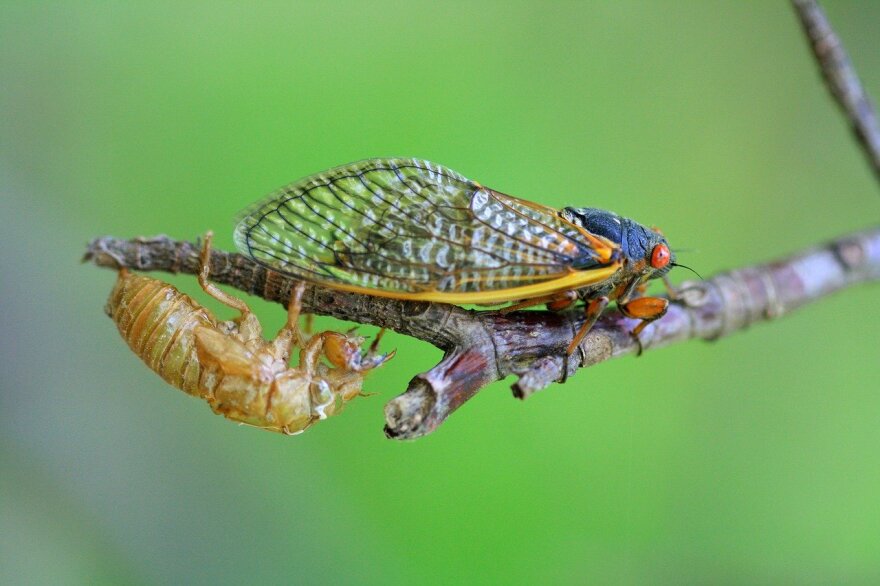Last seen 17 years ago, cicada Brood XIV is about to make its grand reappearance across the state. Experts said the Commonwealth is the epicenter of the brood, with most of its millions’ strong population located in eastern Kentucky.
Jonathan Larson, Extension Entomologist for the University of Kentucky, said many things in the world have changed since the last time this brood emerged. He said although cicadas might seem creepy at first, there’s more to unearth about them than that.
“I think of them kind of as the guardians of time. They’re these amazing creatures that live below ground for 17 years and then they come out in this really macabre Mardi Gras where there’s millions of them singing in the trees and mating and dying, and it’s just an amazing, spectacular piece of nature and I kind of hope people go out and enjoy it this summer,” said Larson.
The emergence will last a few weeks, with the bugs coming in waves. He said the first to emerge will likely quickly be eaten by predators, but as they tire of their cicada diet, more will be able to successfully gather and mate.
Larson said cicadas aren’t found anywhere else in the world and won’t be found anywhere else across the country this summer like they will be locally.
“So, I understand being icked out by bugs, I understand being somewhat unnerved by their loud songs, but it really is an amazing thing, it really is a huge piece of nature that just shows the power of nature and our place in the world. And I hope that people will go out and at least listen and kind of appreciate this song and appreciate the magnificence of the cicadas and maybe pay some respects to nature in that fashion,” said Larson.
Larson said that while these insects are not harmful to humans or pets, their egg-laying habits could damage the branches of young trees and shrubs. Tree netting is the most effective, non-invasive way to protect landscaping and fruit trees.
He added that while the cicadas’ song is shrill, it isn’t any more damaging to human ears than the sound of a lawn mower.

